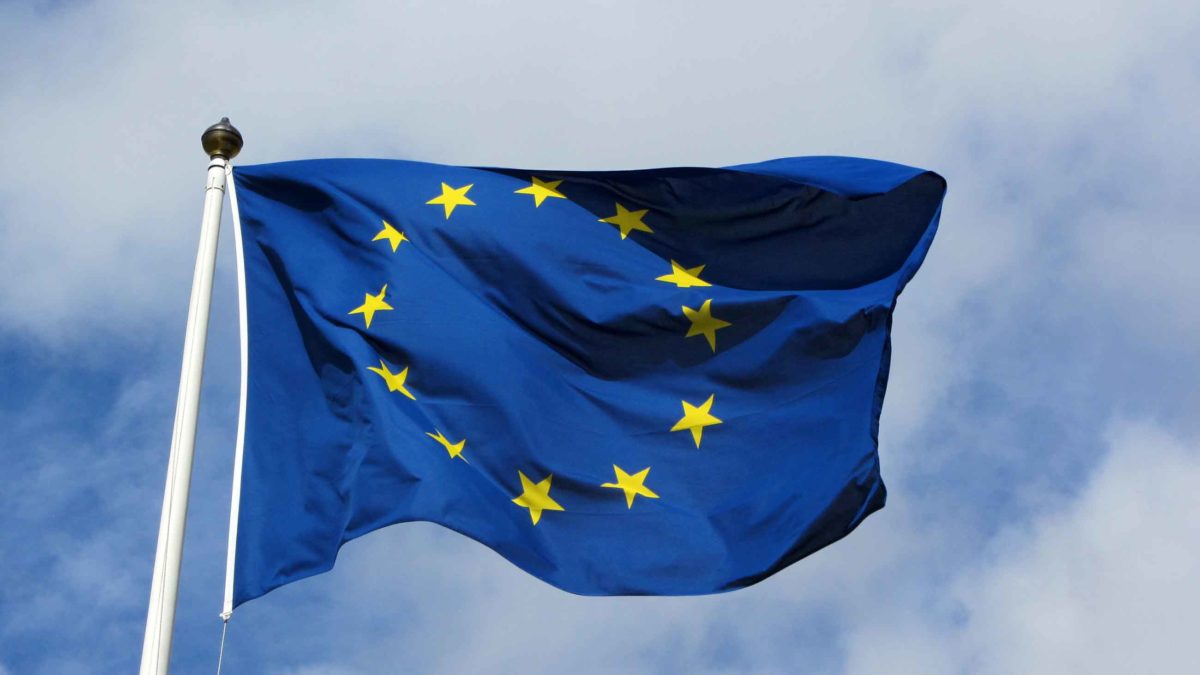Last Friday, 35 scientists and mathematicians sent a letter to British Prime Minister Theresa May and European Commission president Jean-Claude Juncker warning that a hard Brexit could cause barriers to scientific research programs and “inhibit progress, to the detriment of us all.”

A group of scientists and mathematicians are warning of the devastating impacts Brexit could have on science.
Visual: MPD01605/Flickr
Such a move, in which the United Kingdom would completely pull out of the European Union and its single market next March, would render U.K. scientists ineligible to participate in projects backed by European Research Council grants or Marie Skłodowska-Curie actions, leading to a potential $1.35 billion loss in research funding.
The letters, led by Royal Society president Venkatraman Ramakrishnan, were signed by 29 Nobel Laureates and six Fields Medalists — including scientists from across the U.K. and Europe. In an interview with Nature, Ramakrishnan emphasized that discussion of Brexit’s effects on science must “be brought back from the back burner and addressed.”
If the U.K. and E.U. do not reach an agreement by March, they may face a “no-deal” Brexit in which the two would completely separate without a transition period, immediately affecting scientists and putting long-term research plans on hold.
“By deciding to leave the E.U., the U.K. has given up its right to participate in E.U. research and innovation programs,” the group wrote in their letter. “It must now step up its commitment to those programs if it wants to remain involved.”
Severing ties with the European Union could also impact the free movement of researchers from Europe to the U.K. and may result in a migration of scientific talent to other countries. In a survey released on Monday by the London-based Francis Crick Institute, the largest biomedical research center in Europe, half of the 1,000 staff members surveyed said they would be more likely to look for their next research job outside the U.K. if they leave the institute post-Brexit. (Forty-two percent of the institute’s staff members are from E.U. countries.)
Paul Nurse, one of the letter’s signatories and director of the Crick Institute, said in a statement on the institute’s website, “A hard Brexit could cripple U.K. science, and the government needs to sit up and listen. We need a deal that replaces the science funding lost because of Brexit, that preserves freedom of movement for talented scientists, and that makes them feel welcome in this country.”
Also in the news:
• The science community may finally be reining in the problem of publication bias, a new study suggests. The bias, also known as the file-drawer problem, describes authors’ tendency to publish results that support their hypotheses and shelve the ones that don’t. It has shouldered partial blame for what’s been called the reproducibility crisis in psychology, and the nonprofit Center for Open Science recently set out to address it by encouraging researchers to preregister their experiments. In a preregistered experiment, researchers log their hypotheses and protocols with a journal before beginning a study — and then commit to publishing the results no matter the outcome. Now a team from Cardiff University in Wales has analyzed more than a hundred preregistered studies in psychology and biomedicine, and they’ve found that the new publication protocol seems to be working. Only in about 40 percent of preregistered studies did the findings support the original hypothesis, about half the 80 to 95 percent success rate found in the general literature. If anything, the rate of positive results in preregistered studies may still be unrealistically high: Some studies estimate that 9 out of 10 hypotheses tested in psychology turn out to be false. (Nature)
• Scientists reported this week that a tiny Hawaiian island was mostly erased by Hurricane Walaka — one in a series of super-charged hurricanes this year — which swept through the island chain in early October. East Island, as it was known, was a narrow 11-acre spit of land in the French Frigate Shoals, which run through a protected marine area in the northwest region of the islands. Although it was small, the island was considered critical habitat for endangered Hawaiian monk seals and green turtles. “Oh my God, it’s gone,” said University of Hawaii climate scientist Chip Fletcher. ““It’s one more chink in the wall of the network of ecosystem diversity on this planet that is being dismantled.” The full extent of the damage is not yet known, but Charles Littnan, a conservation biologist with the National Oceanic and Atmospheric Administration, said the turtles and seals are likely okay for now, as the majority had left for the season ahead of the storm. (Honolulu Civil Beat)
• Seven children have died and 11 more are ill after an outbreak of adenovirus at the Wanaque Center for Nursing and Rehabilitation in New Jersey this week. The announcement came days after the facility was cited for “handwashing deficiencies” and “infection control issues.” While the ubiquitous adenovirus usually just causes the kind of mild respiratory symptoms you’d expect to see with the common cold, the strain that’s devastating Wanaque “is affecting medically fragile children with severely compromised immune systems,” according to the health department. The incident has raised troubling questions about the facility, which houses particularly vulnerable senior, rehabilitation, and pediatric patients, and which has been barred from admitting new patients until the outbreak is declared over. “This deadly viral outbreak was clearly a preventable tragedy,” said three Republican officials who represent the area where the facility is located, “and state officials must take immediate action to deliver justice to the families who are being forced to reckon with every parent’s worst nightmare — the loss of a child.” (NorthJersey.com, NBC News)
• A small pilot study has provided the first confirmation of scientists’ long-held suspicion that humans are inadvertently ingesting small particles of plastic. Already found in the stomachs, intestines, and feces of many animals, microplastics have now turned up in our own stool as well. Testing samples from eight adults from Europe and Japan, Austrian researcher Philipp Schwabl found that, on average, all samples contained 20 particles of at least one of nine types of plastics, including PET and polypropylene, common components of plastic food wrappers and synthetic clothing. While the study has not yet been published or peer-reviewed, and few conclusions can be drawn with such a small sample size, Schwabl has plans to expand the research. Also this week, the European Parliament voted to ban some single-use plastics by 2021 in an effort to curtail rising pollution in the world’s oceans. The ban includes any items that have readily-available non-plastic alternatives, including plastic plates and straws. The items banned are estimated to make up over 70 percent of plastic marine litter. (National Geographic, The Independent)
• And finally: Arizona State University astrophysicist Lawrence Krauss announced his retirement this week, denouncing the school’s investigation into the allegations of sexual assault against him. Krauss was placed on paid administrative leave in March, after which time the university concluded that he had violated its sexual harassment policy by grabbing a woman’s chest at a conference in 2016. While multiple women have come forward over the past decade with allegations of sexual misconduct against the scientist, Krauss adamantly denies the findings, writing in a statement posted to Twitter that he “never harassed or assaulted anyone.” Until his departure from the university at the end of this academic year, Krauss will remain on payroll and continue to receive a salary of $265,000 until. “I look to the future for new and different challenges and opportunities,” Krauss said in his statement. (New York Times)










